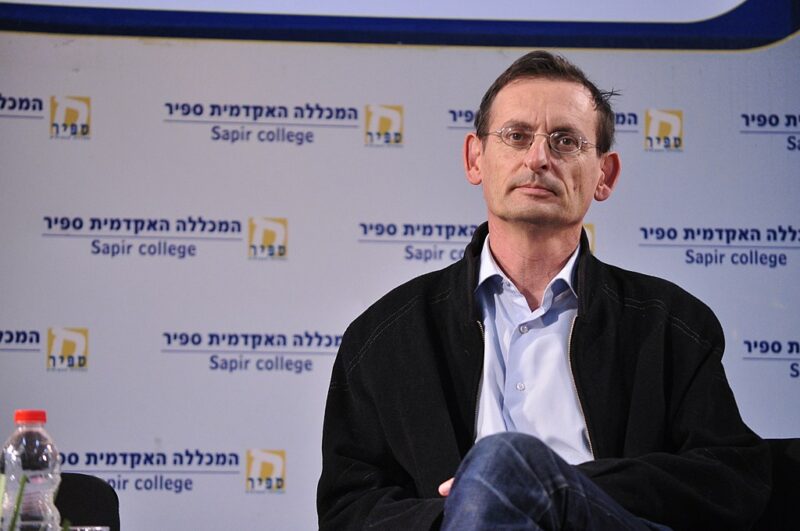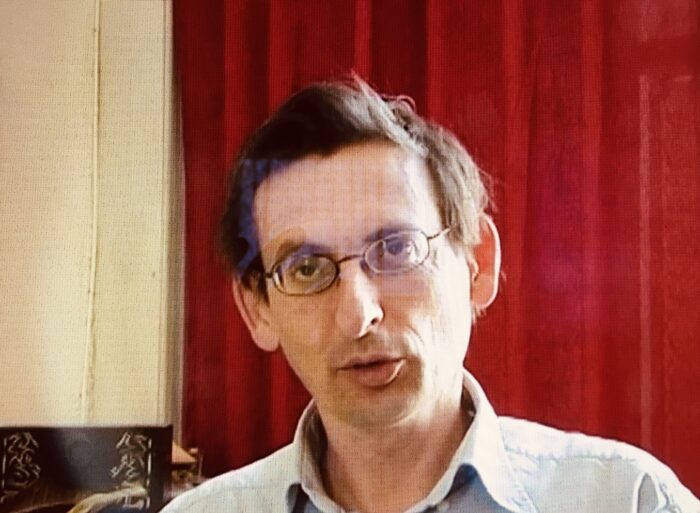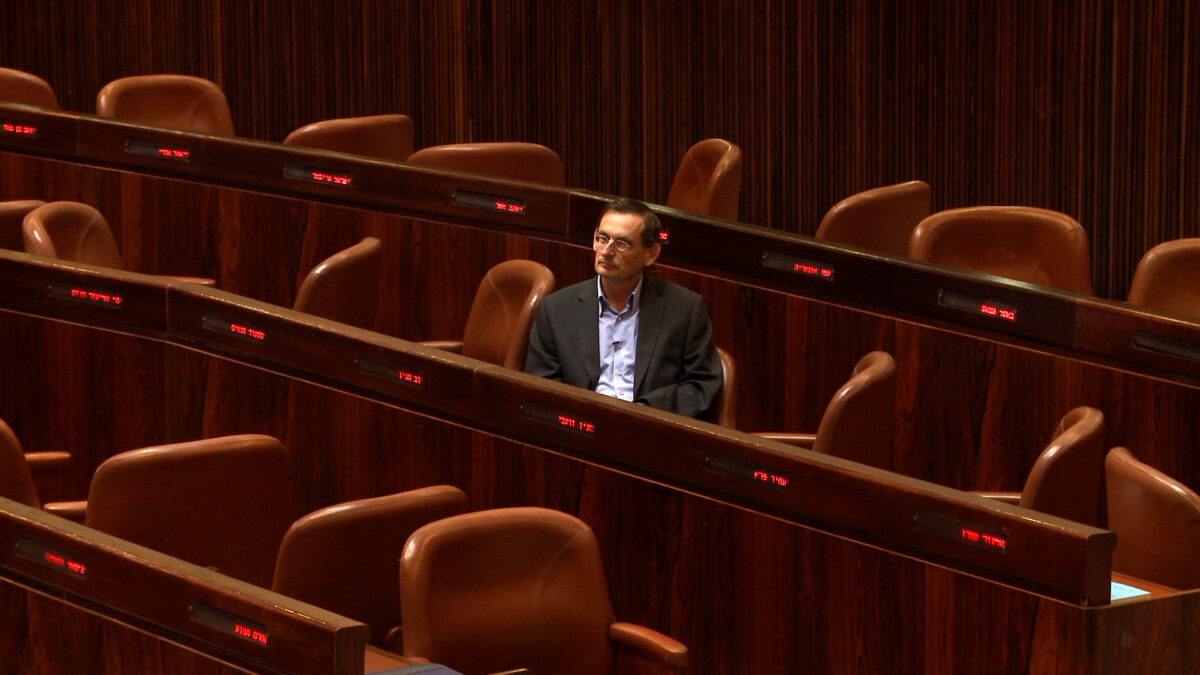Until his resignation from Israel’s Knesset last year, Dov Khenin was the only Jewish member of the Joint List, an amalgamation of four diverse Arab political parties. Khenin was affiliated with the Hadash faction, the successor of the Israeli Communist Party. A lawyer with a PhD in political science, and an idealist in an era when idealism is a vanishing trait, he earned the respect and affection of many of his peers, whether on the left or the right of the spectrum.
Barak Heymann profiles Khenin in his empathetic 75-minute biopic, Comrade Dov, which will be screened online at this year’s edition of the Toronto Jewish Film Festival.

Now 62, Khenin was elected to parliament in 2006 as one of the representatives of the small Israeli Communist Party. He’s a true believer. A framed portrait of the Russian Communist leader Vladimir Lenin hung in his office.
During his 13-year career, he focused his attention on fighting for workers’ rights, opposing Israel’s post-1967 occupation of the Palestinian territories, working for a two-state solution, espousing full equality between Jews and Arabs, and promoting laws protecting the environment.
No issue was too minor for Khenin, who lives in Tel Aviv with his wife and three children. He pushed through legislation to assist blind shoppers in supermarkets. “If you work right, you can do great things,” he says. As a parliamentarian, he proceeded from the assumption that problems needed fixing. “If things were great, I’d be sitting on my porch eating watermelon, right?”

Khenin comes across as an impassioned person who won’t sit still in the face of injustice. At a rowdy session of the Knesset’s Finance Committee, he accuses its chairman of misappropriate and high-handed behavior.
As might be expected, some Israelis are critical of Khenin. “He may have good intentions, but he’ll lead us to ruin,” says a woman. “He’s very extreme,” says another Israeli.
Critics within the Joint List voice complaints about him, too. A young Arab woman speaking idiomatic Hebrew complains he has not supported Palestinian rights vigorously enough. A Jewish radical argues that an Ashkenazic man like Khenin, who enjoys the privileges of a “racist” country, can’t lead the struggle for real change.
Although he’s an atheist, he has endeared himself to a number of ultra-Orthodox Jews. In the Knesset, a religious parliamentarian shakes his hand and compliments him. “Israeli society needs you here,” he says. Khenin, whose grandfather was a rabbi, brings a smile to a surprised Chabad reporter’s face when he chants a plaintive chassidic melody.

Throughout the film, Khenin flits from one demonstration and meeting to the next, leaving the unmistakable impression that he is fully engaged in the issues of the day.
He listens attentively to a group of poor Jews who are being evicted from their substandard homes. He attends a rally where Israeli Arabs sing the Palestinian national anthem. In a nearly empty Knesset chamber, he reads out a list of 51 Arab citizens of Israel who’ve been fatally shot by soldiers or border policemen since the riots of October 2000.

A fierce advocate of Jewish-Arab reconciliation, he understands why Arabs in Israel identify as Palestinians, but argues that they should feel at home in Israel, which is their country, too.
Khenin’s departure from the Knesset does not signify his disengagement from politics. He dreams of making Israel a better place for all its citizens, and this lofty objective keeps him going.
